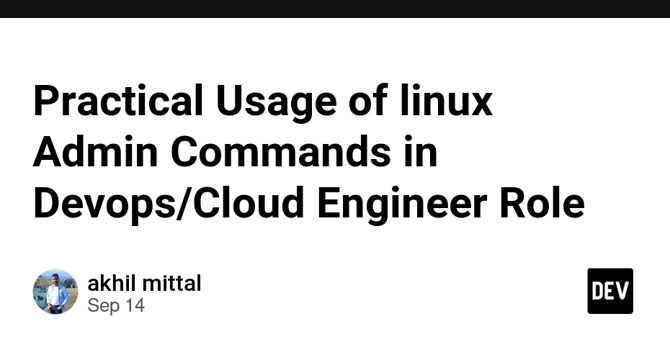Dev
2M
367

Image Credit: Dev
Practical Usage of linux Admin Commands in Devops/Cloud Engineer Role
- Linux admin commands are fundamental tools for DevOps and Cloud Engineers, enabling them to manage systems, automate tasks, and troubleshoot issues efficiently.
- Common Linux admin commands have practical use cases in system monitoring and performance, file and directory management, networking, user and permissions management, service management, log management, and backup and restore.
- Examples of practical use cases include using top to monitor CPU and memory usage, rsync to synchronize files between servers, netstat to display network connections, chmod to change file permissions, systemctl to manage system services, tail to view log files, and tar to create compressed backups.
- By leveraging Linux admin commands effectively, DevOps and Cloud Engineers can streamline operations, ensure system reliability, and handle complex tasks efficiently.
Read Full Article
22 Likes
For uninterrupted reading, download the app